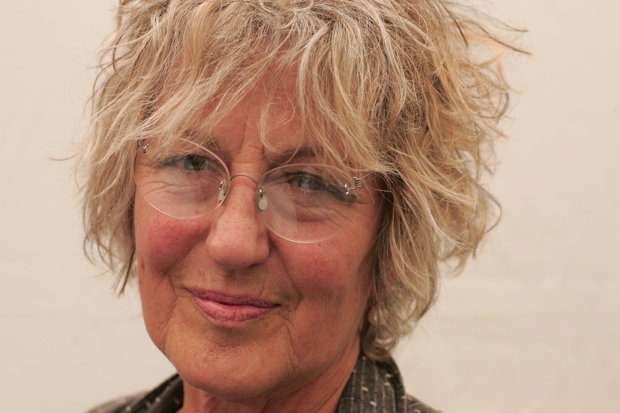When my colleague Charles Moore first began accusing Radio 3 of becoming ‘babyish’, and talking down to us as if we’re too ignorant to understand anything complicated, I had to agree. The constant twittering between items, the gimmicky brainteasers and Classical Top Ten are irritating. Those emails and texts from clever-clogs listeners determined to show off what they know, or have performed themselves, or seen on stage are as annoying and pointless as Christmas round-robin letters. But these are all merely sideshows, not the main performance. The real test for the station is whether our musical palates are still being tested, educated, stretched. What we really need to care about is whether it’s still possible to hear on 3 something so amazing, so unusual, so different that we stop what we’re doing and stand still, thinking, ‘Wow! What was that?’
To argue against the transformation of 3 into a station fit for 2014 is like taking on the mantle of Canute and trying to hold back the tide. We’re no longer in the 1950s. Cormac Rigby and Patricia Hughes are long gone. Their measured diction and restrained delivery would now sound so old-fashioned and a bit slow off the mark. Do we really want to go back to a station that played the odd bit of Schoenberg and Martinu but would have baulked at the range of music we heard on Friday night on World on 3?
The programme (produced by Roger Short) was not just ‘live’ from the Celtic Connections festival in Glasgow, with the expert and engaging Mary Ann Kennedy (herself an award-winning performer of traditional music) as presenter. It also launched a six-month season that will take us on a musical journey to all the countries in the Commonwealth, finishing the tour just in time for the opening of the Games at the end of July. This is not dumbing-down, in spite of Charles Moore’s protestations, but breathing new life into the old Third Programme, ensuring that it stays relevant, keeps in touch with its audience and takes us beyond our limited sphere. It’s what distinguishes 3 from Classic FM, and from the countless number of classical music stations in the USA and elsewhere. Like them, it has to stay in touch with its audience, which itself is changing. But the absence of a commercial imperative allows the programming also to veer off into other directions, alternative routes.
Each week on World on 3 the musical life of a different Commonwealth country, from Antigua to Zambia, will be featured, with a guest appearance, too, from a Commonwealth citizen who will nominate her or his ‘heritage track’ (it’s a gimmick, I know, but there is a point to it). On Friday, we heard from Gideon Mthembu, a champion marathon runner from Swaziland who competed in the Seoul Olympics of 1988. He played a track from Bholoja’s album Swazi Soul, because it reminds him of home. Mthembu is proud of where he comes from, and of the fact that Bholoja has chosen to sing in his native Swazi. But, he says, the piece is fuelled by the dreamy nostalgia that could inspire in anyone thoughts of where they come from — the landscape, the birds, the shapes, colours, smells, feelings. It does. He believes that we should retain a pride in our roots, even after leaving; a message that seems important in these dislocated times.
Over on 4, I had to listen to Germaine Greer’s Book of the Week if only to find out what she’s been up to in these past few silent years when we’ve no longer heard her grating twang and begun to miss her always stimulating thoughts on sex and society. It turns out she, too, has been yearning for home. Since December 2001, she’s been tramping the length and breadth of a weed-infested stretch of swampy rainforest on the Gold Coast, which she bought on a whim after an encounter with a rare bird, ‘a sort of crow in fancy dress’ that began a strange dance, his ‘black rump’ moving rhythmically back and forth. (Sex is never far away when Greer is on air.)
Cave Creek was once a ramshackle house with acres of ‘battered land’ attached, which Greer decided would be the focus of her single-minded mission to rescue her homeland from the ravages of two centuries of clearances, quarrying and pollution. With characteristic modesty, she asks, ‘Could I rebuild the forest?’
An hour later (also on 4) we heard from another remarkable woman, Dame Laura Knight, whose diaries from the Nuremberg Trials, which she attended as an official artist, have been adapted by Amanda Whittington for her series Writing the Century. Knight stayed at the Grand Hotel in the same suite once used by Hitler; she spent days in the courtroom looking down on the heads of the 20 Nazis in the dock. One day a former medical attendant describes the tortures that were inflicted on the inmates of the concentration camps. Goering, she observes, was not ‘his usual, devil-may-care self… and for the first time I saw his ruthless side… I felt pretty ruthless myself. To be absorbed in my doing, while such history is being made.’






Comments